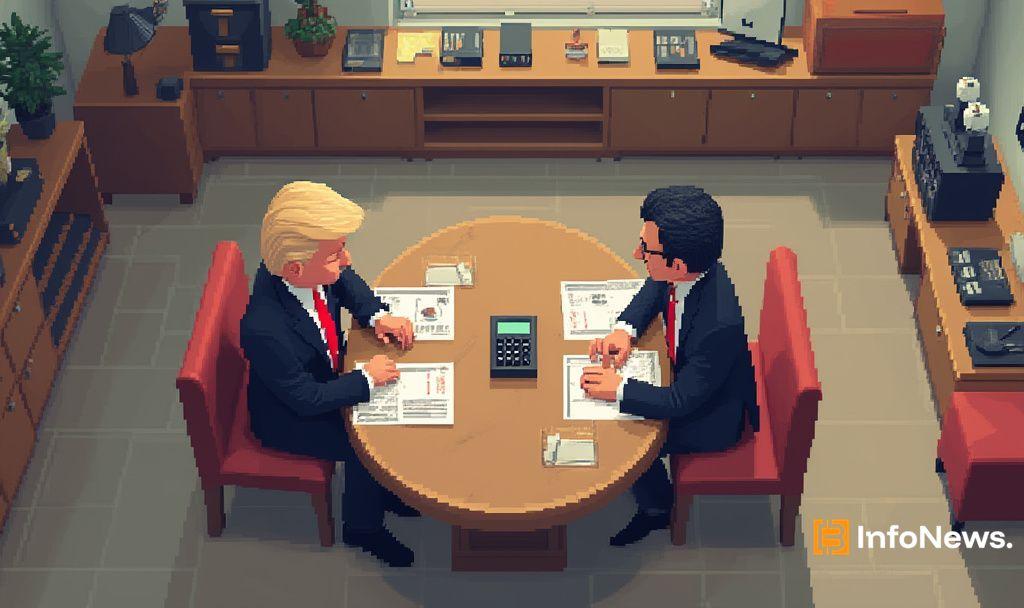Trump, Japanese PM Discuss Trade Tariffs Amid Negotiations
- US and Japan engage in crucial trade talks.
- Japan dispatches team for tariff negotiation.
- Possible effects on global trade relations.

President Trump and the Japanese Prime Minister confer on trade tariffs, with Japan sending a negotiation team to the US.
This meeting could affect international trade policies and produce significant economic changes.
US-Japan Tariff Talks Aim for Quick Resolution
The meeting between Trump and the Japanese Prime Minister is vital for addressing ongoing trade issues. Discussions focus on tariff regulations affecting multiple industries. Both nations aim to settle disagreements soon.
Japan has dispatched a team to engage in negotiations. Their goal is to address tariffs placed on Japanese exports. Both countries recognize the significance of maintaining healthy trade relations.
Industry Concerns Over Potential Tariff Increases
The talks could directly affect industries, including automotive and agriculture. Companies within the sectors express concerns over potential tariff increases and the impact on supply chains.
Political analysts suggest a shift in diplomatic relations may occur if agreements are not reached. The economic implications could resonate globally, affecting import and export pricing structures.
“Japan’s position as the largest foreign direct investor in the U.S. for five consecutive years urges reconsideration of tariffs due to their potential harm to investments.” – Shigeru Ishiba
Historical Precedents in US-Japan Trade Talks
Past discussions between the US and Japan have resulted in mixed outcomes. Previous tariff adjustments have taken similar forms under different administrations, often leading to temporary solutions.
Experts predict the negotiations could result in either a trade agreement or extended discussions. Historical trends show temporary economic shifts, but lasting change is challenging without comprehensive deals.




